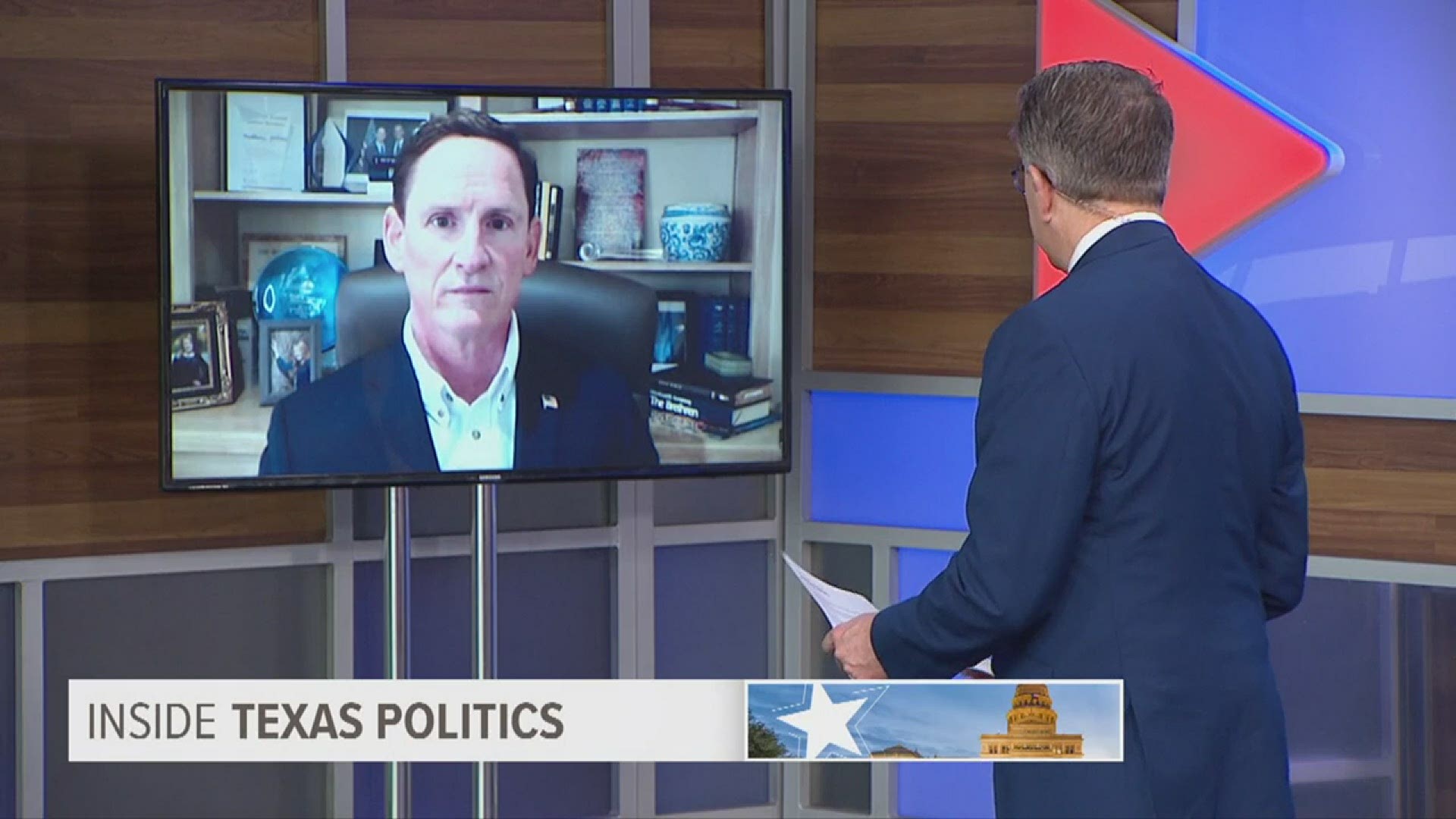DALLAS — As the federal government began its own effort to vaccinate some of the most vulnerable people in Dallas, County Judge Clay Jenkins said the state has begun reducing how many coronavirus vaccines are available for everyone else.
“As we sit here on Sunday, Dallas County has received from the federal government… a total of 42,000 Pfizer doses and 6,000 Johnson & Johnson doses,” Jenkins said on Sunday’s Inside Texas Politics. “But the state has shorted us 56,000 doses.”
Jenkins said he didn’t know where the state is diverting the doses or understand why it is happening.
The decision is not only hurting Dallas County’s most vulnerable population, Jenkins said, but it is also delaying herd immunity.
“Parkland Center for Clinical Innovation says if we can get the state doses back and keep the federal programs going, we can reach herd immunity by June,” Jenkins said on the television program.
But the state refutes the judge's claim.
"Dallas County is not being shorted doses. They just aren’t being allowed to get doses from the state in addition to the doses from federal government because that would make their total allocation higher than their proportion of the state’s population," said Lara M. Anton, spokeswoman for the Texas Department of State Health Services.
"One of the Expert Vaccine Allocation Panel’s directives is to distribute vaccine equitably to counties. When the federal government set up the three FEMA supported vaccination sites, they allocated doses directly to those counties. DSHS adjusted the amount allocated to Dallas County by the state to keep their allocation aligned with their proportion of the state’s population," she added.
Dallas County providers were allocated 43,325 first doses two weeks ago, 45,690 first doses last week and 61,120 for next week, according to the Texas DSHS.
Jenkins said Dallas County receives 21,000 Pfizer vaccines a week from the Biden Administration for the 17 most vulnerable and disadvantaged ZIP codes.
Starting this week, Dallas County is expected to begin receiving 6,000 Johnson & Johnson doses every week for residents in jail, mental health facilities and the homeless population, Jenkins said.
The judge also faced questions why the county has had several days with hundreds or thousands of vaccines available for residents in certain ZIP codes but no one in line to receive them.
Jenkins said management of the entire operation has smoothed out since the beginning.
But on Saturday, Jenkins again tweeted that vaccines were available for people needing second doses because no one was there.
“We were having to catch up people for second doses who were on an old operating system. Now we’re on a new operating system. You get an appointment. The wait times are about 10 minutes and that’s a good thing,” he said.

